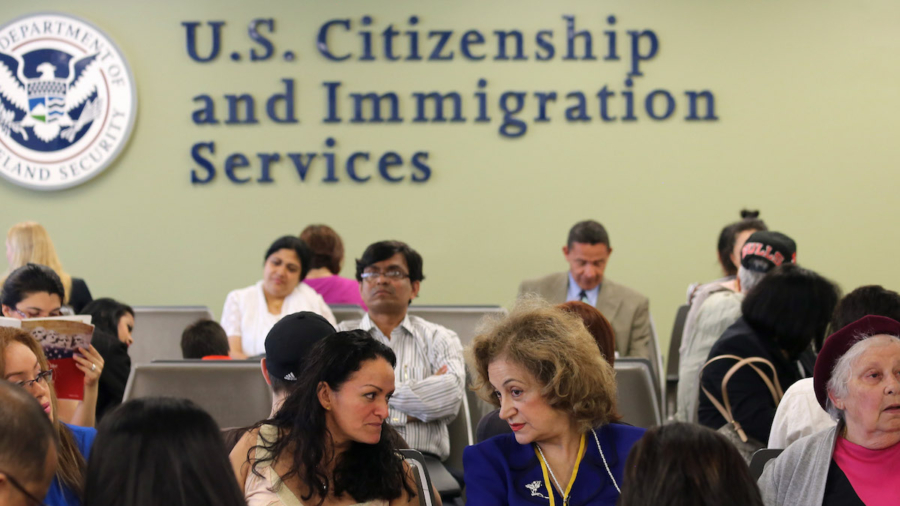Federal judges in three states have issued temporary injunctions against the Trump administration’s new “public charge” policy (pdf) that seeks to ensure that future immigrants can support themselves without becoming a burden on taxpayers.
Almost simultaneously, judges in three separate cases before U.S. District Courts for the Southern District of New York, Northern District of California, and Eastern District of Washington enjoined the Department of Homeland Security (DHS) on Friday from implementing and enforcing the new rules, which are planned to go into effect on Oct. 15. Two of those temporary injunctions, namely New York and Washington, are nationwide.
In response, the White House issued a statement expressing its disappointment with the rulings, especially the nationwide injunction.
“The rulings today prevent our Nation’s immigration officers from ensuring that immigrants seeking entry to the United States will be self-sufficient and instead allow non-citizens to continue taking advantage of our generous but limited public resources reserved for vulnerable Americans,” the statement read. “These injunctions are the latest inexplicable example of the Administration being ordered to comply with the flawed or lawless guidance of a previous administration instead of the actual laws passed by Congress. ”
As a longstanding policy, the federal government can deny an individual to enter the United States or obtain legal permanent resident status if the applicant is determined likely to become a burden on the country, in other words, a “public charge.”
“Through the public charge rule, President Trump’s administration is reenforcing the ideal of self-sufficiency and personal responsibility, ensuring that immigrants are able to support themselves and become successful in America,” Ken Cuccinelli, acting director of U.S. Citizenship and Immigration Services, an agency under the DHS, said at a White House press briefing Aug. 12.
The new rule defines an immigrant as a “public charge” if they take in one or more designated public benefits for more than 12 months within a 36-month period. The rule also lists cases where people are exempt from the regulation, largely on humanitarian grounds.
The White House noted that promoting self-sufficiency among immigrants has been a basic principle of the immigration system for a long time, citing a 1996 bipartisan legislation (pdf) enacted by Congress and President Bill Clinton.
Part of the legislation states that “aliens within the nation’s borders [should] not depend on public resources to meet their needs.”
“The availability of public benefits [should] not constitute an incentive for immigration to the United States,” it continues, adding that “Despite the principle of self-sufficiency, aliens have been applying for and receiving public benefits from Federal, State, and local governments at increasing rates.”
Mimi Nguyen Ly contributed to this report.


